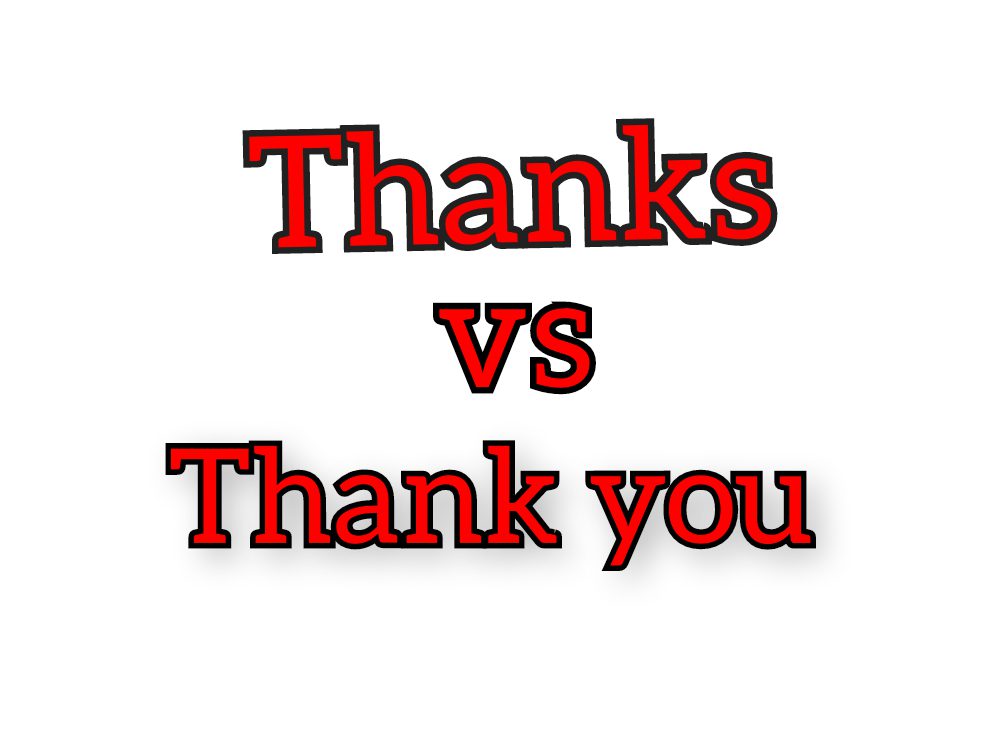‘Thanks’ and ‘Thank you’ seem to be the same to be used by many prople. Most of the people consider ‘Thanks’ and ‘Thank you’ can be used any where in the same situation to express their gratitude. That’s true that they both are expressions of appreciation and gratitude. While the difference might be considered minimal, it is still there.
Thanks
‘Thanks‘ is more informal way of expressing gratitude. ‘Thanks’ is used informally to express your gratitude. It is usually used with family members and friends and so it might be more commonly used than thank you. It is not much stanger-friendly.
For example
When your friend gives a gift to you, you can sat to him, “Thanks, for the gift.”
When you are talking to your brother, “Thanks brother!”
Thank You
Thank you is used more formally. When you are expressing your gratitude at your work place, to your boss, to your senior, to your principal or teacher, you should say ‘Thank you’ not ‘Thanks’. ‘Thank you’ is the most standard form of gratitude and appreciation. It is more polite, personal and sincere and often used with someone of higher status or age. Thus it is considered to be a genuine expression of appreciation and gratitude.
Examples
When you want to express your appreciation to you boss, you will say.
“Thank you sir for your help.”
“Thank you ma’am for promoting me.”
‘Thank you’ is more formal but can be used with all the people in both formal and informal settings. Therefore you cannot go wrong with ‘Thank you’. you should avoid using ‘Thanks’ in formal situations.
It is important to know more about formal and informal English.
- Basic vs Advanced English Vocabulary
- Simple Present Tense Rules with Examples
- 10 Useful Idioms with Meaning and Examples
- Various Ways to Make Requests
- Prepositions Test with Answers
- Collocations in English
- Whose vs Who’s
- Using Idioms and Expressions in Everyday Conversations
- Daily Use Sentences in Hindi to English
- Techniques to Improve English Vocabulary
- Its and It’s Worksheet
- Tips to Improve English Writing Skills
- Overcome Your Fear of Speaking English in Public
- How to Order Food at a Restaurant
- Lose vs Loose : Differences with Examples
- Rules to Use Commas in English

